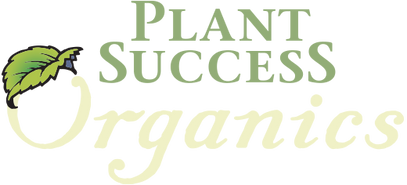FAQs Dropdown
Mycorrhiza is a naturally occurring fungus that increases a plant's ability to uptake nutrients and water. In this symbiotic relationship, the mycorrhiza colonizes the plant's roots and increases the surface absorbing area 10 to 700 times. The plant channels sugars to feed the fungi which sends nitrogen, phosphorus and other nutrients back to the plant. This mutually beneficial relationship is said to be around 460 million years old and coincides with plant colonization of land. It is believed that around 95% of plants are mycorrhizal. It is safe to say that mycorrhizae are a crucial part of a complete soil ecosystem.
Once established, mycorrhizae will enhance the surface area on a root system and support growth. This results in a plant better able to metabolize and absorb nutrients and water from the soil. Plants treated with mycorrhizae have enhanced drought tolerance, yields, and vigor, as well as, improved stress tolerance to transplant shock and over or under watering
The most important factor when applying any mycorrhizal inoculum is to make sure that the mycorrhizal product touches the roots of the plant. This ensures that the spores (seeds of the fungus) touch the roots and germinate. Plant Success Organics Soluble can be watered into the root system of established plants or at transplant time Plant Success Organics Granular can be spread around the root ball. Specific application rates can be found on our product pages.
Mycorrhiza have a symbiotic relationship with around 95% of the world’s plants. Generally, trees like conifers, hardwoods and woody ornamental shrubs form with ecto mycorrhiza. This group includes roughly 15% of plants. The other roughly 80% of plants form with endo mycorrhiza. Those that don’t form or have a specialized type of mycorrhiza include the brassica family such as broccoli, kale, and cauliflower and the ericaceae family such as azaleas, rhododendrons and blueberries. For a full list of plants and the mycorrhiza they form with, click here..
Our blends contain the most diverse variety of mycorrhizal species so that they work with the most diverse variety of plant and soil types. This ensures that no matter what or where you are planting, our blends will contain a mycorrhiza species that will enhance your plant’s development. Also, plants can form relationships with more than one type of mycorrhiza depending on soil conditions. For these reasons, a variety of hardy mycorrhizal species is preferred for germination.
Beneficial bacteria in nature are the foundation of good soil and provide a number of benefits to both soil and plants. Specifically, the microbes will minimize nutrient leaching, aid in nutrient cycling and absorption, enhance soil structure, solubilize minerals (including phosphorous) for plant availability, enhance seed germination and root development. Research has shown that beneficial bacteria are most effective when used in combination with beneficial mycorrhizal fungi.
Mycorrhiza are best applied early in a plant’s life, which is ideally when transplanting or watered into nursery starts. Mycorrhizae can be applied any time however via Plant Success Organics Soluble.
No, there is no detrimental effect if over applied. Our recommended rates are a cost-effective way to sufficiently treat your plants.
Although soil organisms can metabolize some standard plant foods, we recommend using organic fertilizers when possible as these increase the bioavailability of the nutrients for better plant utilization. Some of the best additions for soil organisms include fish, kelp, humic acids or compost.
